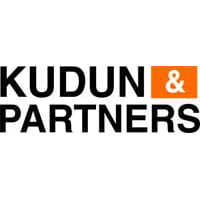
China 2019

Senior legal director | Meituan Dianping





Jian Liu
Senior legal director | Meituan Dianping
I joined Meituan Dianping in February 2018. Since then I have been involved in Meituan Dianping’s IPO and the acquisition of Mobike by Meituan Dianping in 2018. Before February 2018 I was an attorney at Weil Gotshal’s Beijing office specialised in mergers and acquisitions. In late 2017 I was involved in the acquisition of Cardinal Health’s pharmaceutical and medical device distribution businesses in China by Shanghai Pharmaceuticals Holdings.
It is really important for in-house lawyers to maintain a good relationship with business partners as I believe legal and business people in the same company should have the same goal to improve business operations. An In-house lawyer should: really understand the nature and model of the business and speak the same language as the business people; try to provide a solution to any questions and “no” is not an answer; respond promptly but if this is a difficult question, tell the business people at the beginning that you need to do research and it takes time to respond; become an expert in that category and let business people respect you.
The pros of working in-house include the following: business sense – an in-house lawyer can be more familiar with the business and improve problem-solving ability; diversity – an in-house lawyer can do more varied work compared with a lawyer in private practice; becoming an expert in an industry – therefore the in-house legal business partner usually needs to be trained in-house; management skills – lawyers in private practice usually do not spend time in management as they would prefer to spend time billing clients, while management is important for in-house teams to run efficiently, in-house team leaders can really improve their management skills; finally, there’s no pressure to find clients. Cons include the following four points: legal skills (especially drafting skills) can be improved more quickly in private practice; depth – with regard to certain specific legal questions, lawyers in private practice tend to dig deeper in legal questions, therefore in-house legal centre of expertise teams (such as M&A and/or litigation teams) can hire external lawyers to enhance the capacity; freedom – private practice lawyers tend to be more flexible as long as they can serve their clients well; finally, internal pressure from business leaders – this is a real problem for in-house lawyers especially when business teams need to meet their KPIs.
The TMT industry is rapidly evolving and the competition is intense. As in-house counsel in the TMT industry, we need to learn new knowledge and improve ourselves every day to keep pace with the development of our company. In addition, given the size of big TMT companies, the boundaries of businesses are not very clear, which means an in-house lawyer may need to learn a lot of things.
More and more good lawyers in private practice (including the best lawyers in international firms) will join the in-house legal sector, especially in leading TMT companies and promising start-ups. Therefore there will be more talents becoming in-house legal counsels, which is good for the development of in-house legal markets on the whole.
The competition will be more intense. As for international law firms, some of them may have to withdraw from the Chinese market if they cannot get enough deals to sustain a China office and only international firms in the first or second tier will thrive. As for domestic Chinese law firms, they will become bigger platforms and adopt more management and operation models or systems of the corporation. Domestic law firms will gradually take more leading roles in cross border transactions when clients are domestic entities. Being bilingual is a “must” for both international and domestic lawyers.
FOCUS ON… Legal business partners provide legal services to a specific business and they need to become experts in this particular business. They need to really understand the nature and model of the business, and most legal business partners need to be trained in-house as most external lawyers are not that familiar with the business. Legal COEs, ideally, should be experts in certain legal fields, such as M&A or litigation. Legal COEs usually need to be hired from external law firms as it is very difficult for an in-house legal department to train such experts internally. Currently in-house lawyers are usually reacting to legal inquiries and their roles are mostly responsive. At this time in-house lawyers should be more proactive and do more things in addition to providing legal advice. They should not only provide legal advice after incidents occur, but also try to prevent risks in advance before bad things happen. They should pay more attention to compliance in advance, not afterwards. In the long run in-house lawyers may try to lead more projects in the company and provide more guidance to the business team. In-house lawyers should be treated more as the middle office rather than the traditional back office. Their advice should be a package solution covering legal and business fields, and they can introduce industry trends to the business people.